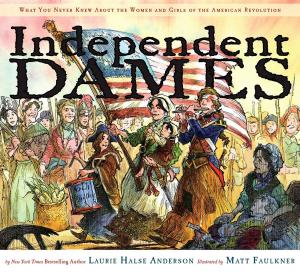Sands of Empire
Missionary Zeal, American Foreign Policy, and the Hazards of Global Ambition
Nonfiction, History, Americas, United States, 20th Century| Author: | Robert W. Merry | ISBN: | 9780743274388 |
| Publisher: | Simon & Schuster | Publication: | June 8, 2005 |
| Imprint: | Simon & Schuster | Language: | English |
| Author: | Robert W. Merry |
| ISBN: | 9780743274388 |
| Publisher: | Simon & Schuster |
| Publication: | June 8, 2005 |
| Imprint: | Simon & Schuster |
| Language: | English |
In Sands of Empire, veteran political journalist and award-winning author Robert W. Merry examines the misguided concepts that have fueled American foreign policy since the end of the Cold War. The emergence in the George W. Bush administration of America as Crusader State, bent on remaking the world in its preferred image, is dangerous and self-defeating, he points out. Moreover, these grand-scale flights of interventionism, regime change, and the use of pre-emptive armed force are without precedent in American history.
Merry offers a spirited description of a powerful political core whose ideas have replaced conservative reservations about utopian visions -- these neocons who "embrace a brave new world in which American exceptionalism holds sway," imagining that others around the globe can be made to abandon their cultures in favor of our ideals. He traces the strains of Wilsonism that have now merged into an adventurous and hazardous foreign policy, particularly as described by William Kristol, Francis Fukuyama, Max Boot, and Paul Wolfowitz, among others. He examines the challenge of Samuel Huntington's supposition that the clash of civilizations defines present and future world conflict. And he rejects the notion of The New York Times's Thomas L. Friedman that America is not only the world's role model for globally integrated free-market capitalism, but that it has a responsibility to foster, support, and sustain globalization worldwide.
From the first president Bush to Clinton to the second Bush presidency, the United States has compromised its global leadership, endangered its security, and failed to meet the standard of justified intervention, Merry suggests. The country must reset its global strategies to protect its interests and the West's, to maintain stability in strategic areas, and to fight radical threats, with arms if necessary. For anything less than these necessities, American blood should remain in American veins.
In Sands of Empire, veteran political journalist and award-winning author Robert W. Merry examines the misguided concepts that have fueled American foreign policy since the end of the Cold War. The emergence in the George W. Bush administration of America as Crusader State, bent on remaking the world in its preferred image, is dangerous and self-defeating, he points out. Moreover, these grand-scale flights of interventionism, regime change, and the use of pre-emptive armed force are without precedent in American history.
Merry offers a spirited description of a powerful political core whose ideas have replaced conservative reservations about utopian visions -- these neocons who "embrace a brave new world in which American exceptionalism holds sway," imagining that others around the globe can be made to abandon their cultures in favor of our ideals. He traces the strains of Wilsonism that have now merged into an adventurous and hazardous foreign policy, particularly as described by William Kristol, Francis Fukuyama, Max Boot, and Paul Wolfowitz, among others. He examines the challenge of Samuel Huntington's supposition that the clash of civilizations defines present and future world conflict. And he rejects the notion of The New York Times's Thomas L. Friedman that America is not only the world's role model for globally integrated free-market capitalism, but that it has a responsibility to foster, support, and sustain globalization worldwide.
From the first president Bush to Clinton to the second Bush presidency, the United States has compromised its global leadership, endangered its security, and failed to meet the standard of justified intervention, Merry suggests. The country must reset its global strategies to protect its interests and the West's, to maintain stability in strategic areas, and to fight radical threats, with arms if necessary. For anything less than these necessities, American blood should remain in American veins.















